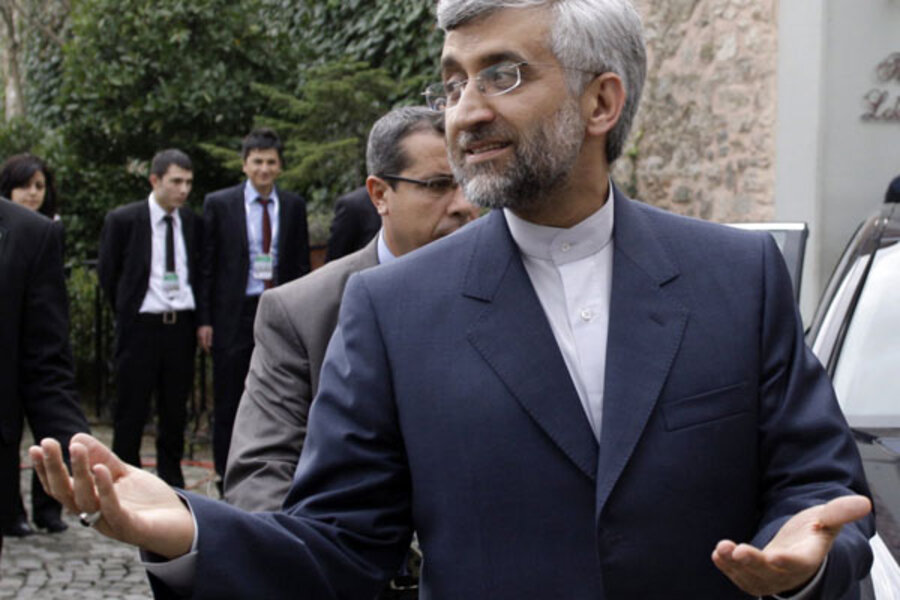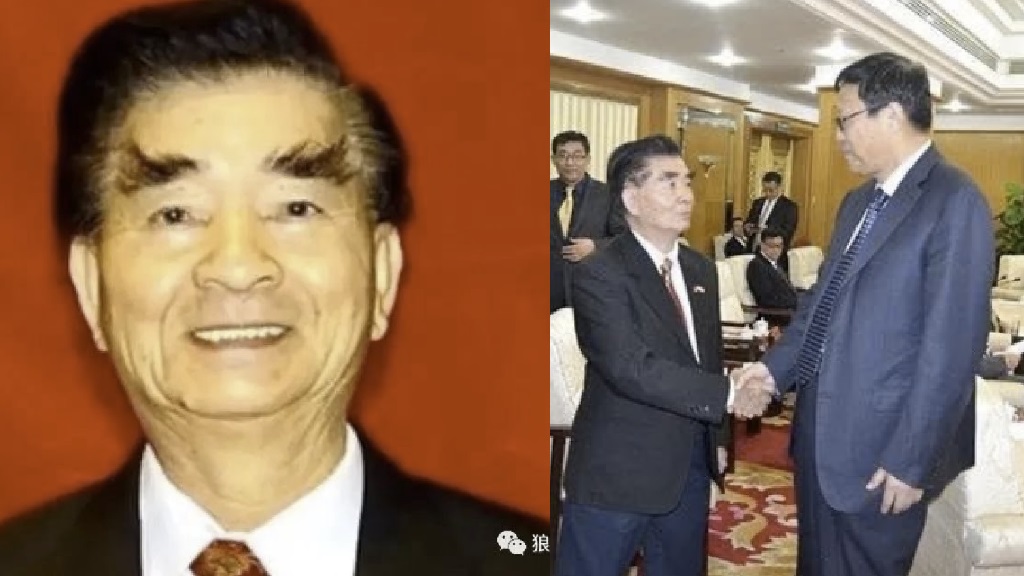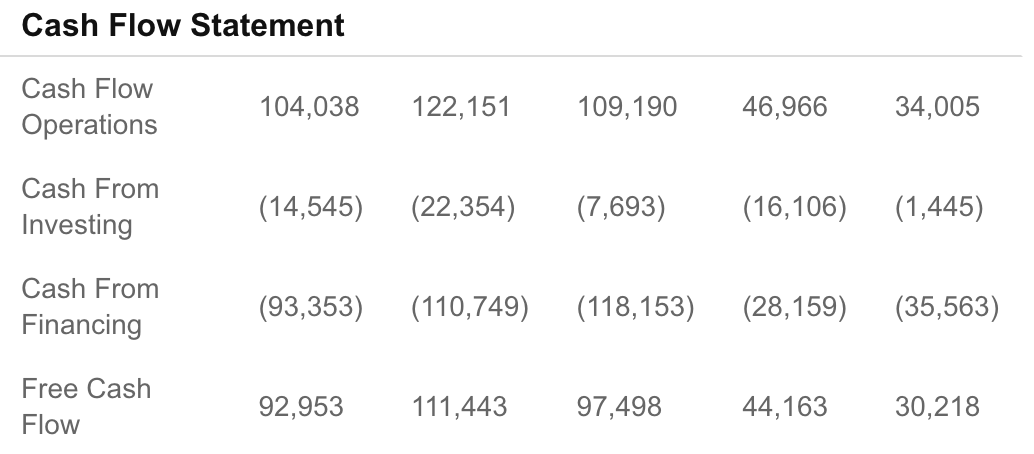U.S.-Iran Nuclear Talks: Stalemate On Key Issues

Table of Contents
Sanctions Relief and Verification
The core disagreement revolves around the lifting of U.S. sanctions on Iran and the robust mechanisms for verifying Iran's compliance with any revived agreement. This is arguably the biggest hurdle in the U.S.-Iran nuclear talks.
Sanctions Relief
Iran demands the complete lifting of all sanctions imposed by the U.S., arguing that these measures have crippled its economy and prevented it from fully participating in the global financial system. The U.S., however, prefers a phased approach, linking sanctions relief to verifiable steps by Iran to reduce its nuclear program. This creates a classic "chicken and egg" scenario within the U.S.-Iran nuclear talks.
- Differing interpretations of "snapback" mechanisms: Disagreements persist on how quickly sanctions could be reinstated if Iran violates the agreement. This concerns both sides, with Iran fearing the arbitrary re-imposition of sanctions and the U.S. needing assurances of swift recourse for violations.
- Debate over the scope of sanctions to be lifted: The U.S. is hesitant to lift sanctions related to Iran's support for terrorism and ballistic missile program, fearing this could free up resources for these activities. Iran views these as linked to its national security and insists on their removal.
- Concerns about Iran's economic activities after sanctions relief: There are concerns within the U.S. and its allies that sanctions relief might lead to Iran using the funds for activities deemed destabilizing to the region. This fuels the need for strict monitoring and verification.
Verification Mechanisms
Verifying Iran's compliance is equally complex. The International Atomic Energy Agency (IAEA) plays a crucial role, but access to Iranian nuclear facilities and the transparency of its nuclear activities remain contentious.
- IAEA inspections and access limitations: Iran has historically restricted access to certain sites, raising concerns about undeclared nuclear activities. This lack of transparency is a major obstacle in verifying the extent of its program.
- Concerns about Iran's undeclared nuclear activities: The IAEA has raised concerns about the possible existence of undeclared nuclear material and activities. Addressing these concerns is crucial for building trust and ensuring compliance.
- Transparency requirements and challenges: The level of transparency Iran is willing to provide remains a key sticking point. The U.S. insists on a much higher level of transparency than what Iran is currently prepared to offer, creating a critical impasse in the U.S.-Iran nuclear talks.
Iran's Nuclear Program Enrichment Levels
The permitted level of uranium enrichment is another major point of contention. Higher enrichment levels bring Iran closer to the capability of producing a nuclear weapon, a prospect deeply concerning to the international community.
Enrichment Capacity and Limits
The debate centers on the acceptable level of enrichment, the size of Iran's enriched uranium stockpile, and the timeline for reducing it. Iran argues for the right to enrich uranium for peaceful purposes, but the scale of its enrichment activities raises serious concerns.
- Debate over the acceptable level of enrichment: The U.S. and its allies want to strictly limit enrichment levels to prevent Iran from rapidly accumulating weapons-grade material. Iran, however, seeks higher enrichment capacities, claiming these are necessary for its civilian nuclear program.
- Concerns about the rapid expansion of Iran's enrichment capacity: The rapid expansion of Iran's enrichment capacity in recent years has fueled fears that it could quickly produce a nuclear weapon if it chooses to do so.
- The timeline for reducing enriched uranium stockpiles: The speed at which Iran should reduce its existing stockpile of enriched uranium is another contentious issue.
International Monitoring and Safeguards
Robust international monitoring and safeguards are essential to prevent Iran from exceeding agreed-upon limits. However, the effectiveness and scope of these mechanisms are constantly debated.
- The IAEA's role in monitoring Iran's nuclear program: The IAEA is tasked with monitoring Iran's nuclear program, but its access and authority have been challenged by Iran in the past.
- Concerns about the effectiveness of current monitoring mechanisms: There are concerns that the current monitoring mechanisms might not be sufficient to detect clandestine nuclear activities.
- Proposals for enhanced verification measures: Proposals for more stringent verification measures are constantly being discussed, but reaching an agreement on these measures remains a significant challenge within the U.S.-Iran nuclear talks.
Regional Security Concerns and Proxy Conflicts
Beyond the technical aspects of the nuclear deal, broader regional security concerns significantly influence the U.S.-Iran nuclear talks. Iran's regional influence and involvement in proxy conflicts are key factors.
Iran's Regional Influence
Iran's support for regional proxies and its ballistic missile program are major concerns for many countries in the Middle East. These activities destabilize the region and complicate efforts to reach a comprehensive agreement.
- Iran's support for regional proxies: Iran's support for various groups in the region, such as Hezbollah and Houthi rebels, is seen by many as a destabilizing factor.
- Concerns about ballistic missile programs: Iran's ballistic missile program raises concerns about its potential to strike regional targets, further escalating regional tensions.
- Tensions with neighboring countries: Iran's relations with several of its neighbors remain tense, hindering progress on regional security cooperation.
Linking Nuclear Deal to Regional Issues
The question of whether regional security concerns should be linked to the nuclear negotiations remains contentious. Some argue that addressing regional security issues is crucial for a lasting agreement; others fear that linking them could further complicate an already difficult negotiation.
- Arguments for and against linking regional issues to the nuclear deal: There are compelling arguments on both sides of this debate. Some believe that regional security is intrinsically linked to the nuclear deal, while others argue that addressing these complex issues separately would be more productive.
- The implications of tying the deal to broader geopolitical issues: Linking the nuclear deal to broader geopolitical issues could lead to an even more protracted negotiation process.
- Potential for further stalemate due to regional complexities: The inclusion of regional security concerns adds another layer of complexity to an already difficult negotiation, increasing the potential for further stalemate.
Conclusion
The U.S.-Iran nuclear talks remain deadlocked due to significant disagreements on sanctions relief, verification mechanisms, and the level of uranium enrichment allowed for Iran. Regional security concerns further complicate the negotiations. A resolution requires compromise and a willingness to address the concerns of all parties involved. The future of the 2015 agreement, and the stability of the region, depends on a successful outcome to these crucial U.S.-Iran nuclear talks. Further progress hinges on finding common ground on these key issues to prevent escalation. Continued monitoring of the U.S.-Iran nuclear talks is essential for understanding the evolving geopolitical landscape.

Featured Posts
-
 Deportation Case Of 2 Year Old Us Citizen Federal Judges Intervention
Apr 28, 2025
Deportation Case Of 2 Year Old Us Citizen Federal Judges Intervention
Apr 28, 2025 -
 Tiga Varian Warna Baru Jetour Dashing Di Iims 2025
Apr 28, 2025
Tiga Varian Warna Baru Jetour Dashing Di Iims 2025
Apr 28, 2025 -
 Xs New Financials A Deep Dive Into Musks Debt Sale Impact
Apr 28, 2025
Xs New Financials A Deep Dive Into Musks Debt Sale Impact
Apr 28, 2025 -
 Blue Jays Vs Yankees Live Stream March 7 2025 Watch Mlb Spring Training Free
Apr 28, 2025
Blue Jays Vs Yankees Live Stream March 7 2025 Watch Mlb Spring Training Free
Apr 28, 2025 -
 Gpu Price Volatility Whats Happening Now
Apr 28, 2025
Gpu Price Volatility Whats Happening Now
Apr 28, 2025
